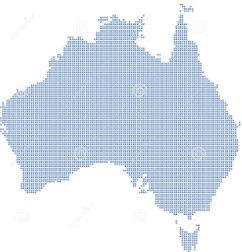
4 minute read
The Evergrande collapse in China and its effects
The Effects of Social Media
By Ioana Stoleru
Advertisement
Mark Zuckerberg is the owner of Facebook, Instagram, WhatsApp and Messenger. He owns 88.65 % of the entire social media market. What happened?
His personal wealth has fallen by more than $6 billion in a few hours, knocking him down a notch on the list of the world’s richest people. A whistle blower came forward and outages took Facebook Inc.’s flagship products offline. The Wall Street Journal began publishing a series of stories on Sept. 13 2021 based on a cache of internal documents, reveal‐ing that Facebook was aware of a wide range of issues with its products — such as Instagram's negative impact on teenage girls' mental health and misinformation about the Jan. 6 Capi‐tol riots — while downplaying the issues in public. The reports drew the attention of government officials, and the whistle blower came forward on Monday. Facebook has responded by emphasizing that the difficulties confronting its products, such as political divisiveness, are complex and not just due to technological factors. The stock slide on Monday sent Zuckerberg’s worth down to $121.6 billion, dropping him below Bvill Gates to No. 5 on the Bloomberg Billionaires Index. He’s down from almost $140 bil‐lion in a matter of weeks, according to the index. What is social media?
Social media is a computer-based technology that facilitates the sharing of ideas, thoughts, and information through the building of virtual networks and communities. Much easier than that, it’s the thing that keeps us on our phones 24/7. But how much do we know about it? The problems of social media:

It is common knowledge that social media’s terms and conditions are constructed in order to allow sur‐veillance of you activity on the internet. But does that cause a problem? Facebook admits to monitoring the actual content in your messages to ensure com‐pliance with its policies. Although social media has provided many benefits, such as allowing us to readily communicate with friends and family around the world and breaking down international borders and cultural barriers, it has also come at a cost. Because of the harmful ef‐fects of social media on our life, Our culture has been undermined by a combination of isolation and global reach. We are being robbed of our time by social media. The human fellowship, physical and emotional, that we formerly placed in one another has been re‐placed with trust and comfort. We used to get emotional support from each other through virtual connections. It takes away our auton‐omy and our ability to think for ourselves. Exposure to opposing views on social media can in‐crease political polarization: Users sometimes blame social media platforms for intensifying political polarization by creating "echo chambers" that shield people from information that contradicts their preexisting ideas. Social media works on the idea that truth is measured in mass ap‐peal. Researchers ran a field test in which they paid a significant number of Democrats and Republicans to follow bots that retweeted messages from elected officials and opinion leaders with opposite political viewpoints. Following a liberal Twitter bot made Re‐publican participants much more conservative, and following a conservative Twitter bot made Democrats marginally more liberal—though this im‐pact was not statistically significant. Social Media and Terrorism:
Another potentially harmful feature of social media is terrorist groups' rapid use of the platform. Islamic terrorism has occurred on a global scale in recent decades, not only in Muslim-majority nations, but also in Europe, Russia, and the United States. Ter‐rorism has used social media to gather information, recruit people, raise funds, and spread propaganda. Weimann, an Israeli academic who has been re‐searching the relationship between terrorism and social media since the dawn of the Internet, has re‐leased a new report titled "New Terrorism and New Media." Social Media and economic impact:
The impact of social media on the economy's struc‐ture has been significant! The most evident differ‐ence is in the marketing strategy that is at the heart of how social media platforms work. Businesses had to pay for indiscriminate ads until social media took off in the hopes that someone interested in their product or service would just happen upon it and no‐tice it. Now, social media networks can match adver‐tisers to interested consumers using data gathered from your likes and posts, making advertising (the motor of the consumer economy) much more effi‐cient. With the changing face of social media, there's still a lot of room for it to have an impact on the economy in ways we haven't anticipated. Facebook, for exam‐ple, experimented with the concept of creating a cryptocurrency for use on its platform in 2019. Such a move would have a big impact on global banking and might potentially give unregulated economies more market power. Concerns about potential nega‐tive consequences have placed the notion of a Facebook cryptocurrency on hold as of August 2020. Even if a Facebook cryptocurrency never ma‐terializes, the concept highlights how much more so‐cial media could influence the economy in the future.







